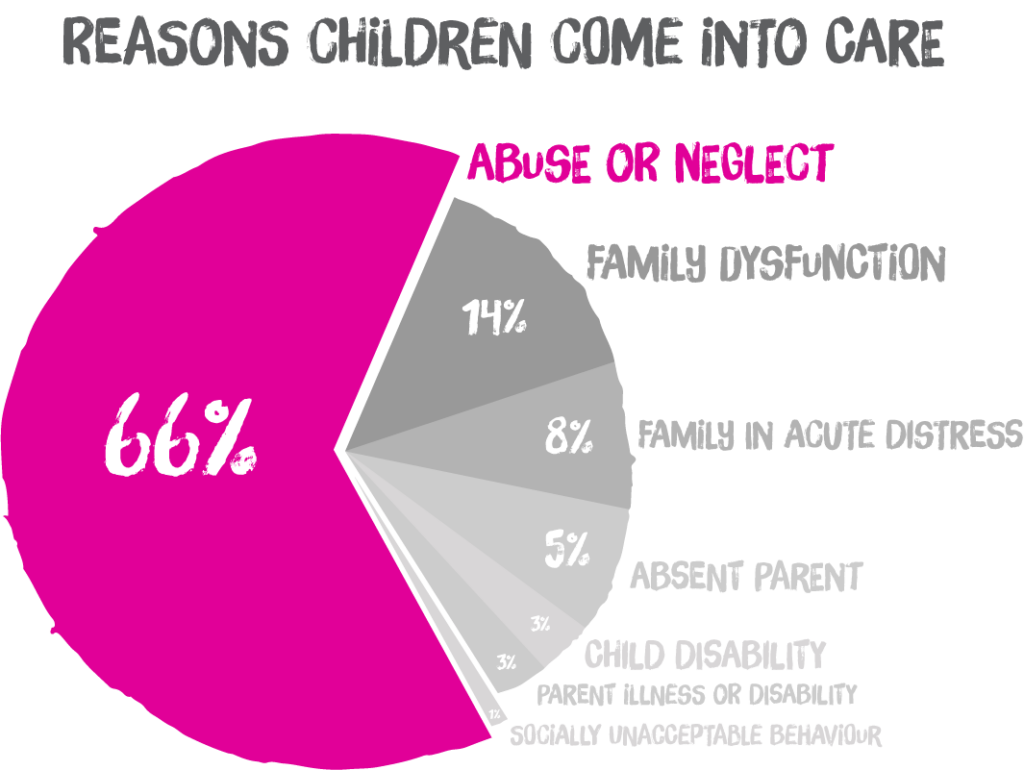What Is Foster Care?
Fostering is about providing care, guidance and support to children and young people who are not able to live with their birth families. Foster care differs from Adoption in that it is not a permanent arrangement, meaning that young people remain the responsibility of their birth parents and their local authority.
A young person can remain in foster care anytime from a few days until they reach 18 years old and beyond, depending on their circumstances and the type of care required.
Foster carers (or ‘foster parents’) work closely with birth families, social workers and other professionals, with a view to helping children return to their families – or to provide a much longer period of care if required.
The question of ‘what is foster care’ can often be greeted by many misconceptions, with its impact on children’s lives being the main concern. The truth is, there are many positive outcomes that have been achieved due to children being placed in nurturing foster homes. Many care-experienced young people stay in contact with their former foster parents, citing them as key figures in their development and wellbeing.
The most important factor is that a young person will always come first in any care decision as their safety and wellbeing is paramount.
foster care: Why Do Children Need It?
Children require foster care for lots of different reasons. It could be that there is an illness in the family, leaving the family home without an appropriate parent or guardian. Many of these cases require short term foster care. Unfortunately, the majority of children need to spend longer in the care system due to concerns of neglect or abuse. In these cases, long term foster care could be required.
Whilst it can be stressful for children to leave the family home, it is sometimes necessary to do so in order to minimise trauma that can impact on a child’s behaviour, their ability to learn and develop skills, their mental health and wellbeing and their ability to form relationships with other people.
The specific nature of why children come into the care system is dependent on their personal circumstances. This chart provides a guide as to the main reasons why children require foster care:

The vast majority of children come into care because of incidents or situations that are beyond that young person’s control.
Who decides that a child requires foster care?
This decision is made by a Local Authority, but only after all other appropriate alternatives have been considered. For example, sometimes a young person can be cared for by another family member or friend. This is called Kinship Care.
In many cases, children come into care with their parent or guardian’s consent via a voluntary Section 20 agreement. Some examples of scenarios that could instigate a Section 20 are:
- There is a concern about the care or accommodation of a young person
- An illness is preventing a parent or guardian from caring for their children
- An admission from a parent or guardian that they feel unable to care for their children
A Section 20 is a short term measure, with a view to address any issues and reunite children with their birth families.
Unfortunately, due to more serious issues such as neglect or abuse, a Care Order can sometimes be served. Care Orders are issued by a court, and are applied for by the Local Authority if a child is suffering, or is at risk of suffering, significant harm. Although a care order can be lifted by a court, the severity of the circumstances behind its issue can mean that children stay in care for a longer period.
Whatever the decision, it will always be made with the best interests of the child(ren).

“It has been an incredible journey. Seeing these children reaching their potential fills me with pride. When you see them growing in confidence and starting to achieve their goals, no matter how big or small, it’s the best feeling.”




